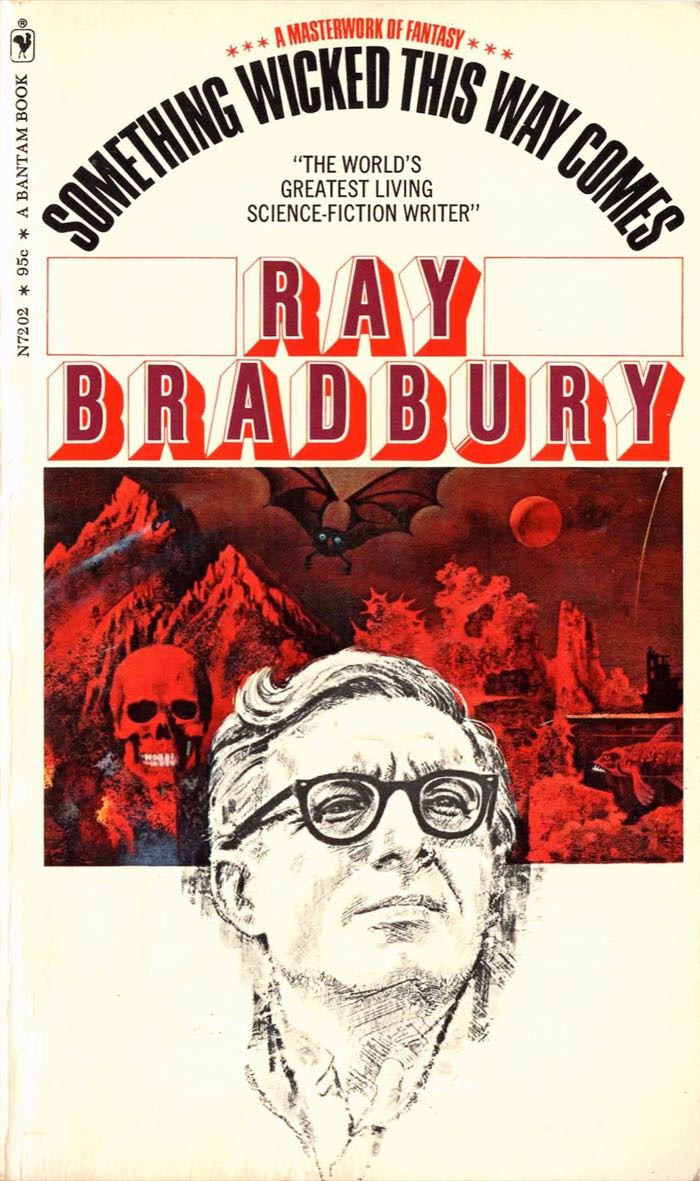Something Wicked This Way Comes
Reviewed date: 2005 Oct 31
Rating: 3
215 pages
"Can they..." said Jim. "I mean...do they..buy souls?"
"Buy, when they can get them free?" said Mr. Halloway. "Why, most men jump at the chance to give up everything for nothing. There's nothing we're so slapstick with as our own immortal souls."
Ray Bradbury has two modes of writing: nostalgic and horror. In Something Wicked This Way Comes he combines these two elements into a story about two young boys in idyllic small-town America who run across the unspeakable horror that lurks beneath Cooger and Dark's Pandemonium Shadow Show. The innocent-on-the-surface carnival offers more than the usual amusements, and entices half a dozen townsfolk into its evil web. Will Halloway and Jim Nightshade, two thirteen-year-old boys, discover the hideous secret of the Cooger and Dark's carnival: the merry-go-round can turn back time and make the old young again. Pursued by the minions of Cooger and Dark, Jim and Will--with Mr. Halloway as their only ally--must find a way to save themselves and their whole town.
Ray Bradbury writes intricate literature that relies more on painting pretty pictures of nostalgia and horror than on telling a story, which is good because his plot is criminally thin. His characters, while not exactly caricatures, are static. The horror that Bradbury tries so hard to conjure is damaged by the slowness of the plot and by the continual interjection of reminiscences of youth. Bradbury is better at short stories than novels.
The only reason to read Something Wicked This Way Comes is because you really, really enjoy Bradbury's prose for its own sake. As an example, here is one representative excerpt where Mr. Halloway defeats a witch and sends her running from his library. As you read it, imagine this style spread over the whole 200 pages of the novel.
And the largest roar of all, flung at the woman, burnt her hands, seared her face, or so it seemed, for she seized herself as from a blast furnace, wrapped her fried hands in Egyptian rags, gripped her dry dugs, skipped back, gave pause, then started a slow retreat, nudged, pushed, pummeled inch by inch, foot by foot, clattering bookracks, shelves, fumbling for handholds on volumes that threshed free as she scrambled them down. Her brow knocked dim histories, vain theories, duned-up time, promised but compromised years. Chased, bruised, beaten by his laugh which echoed, rang, swam to fill the marble vaults, she whirled at last, claws razoring the wild air and fled to fall downstairs.
